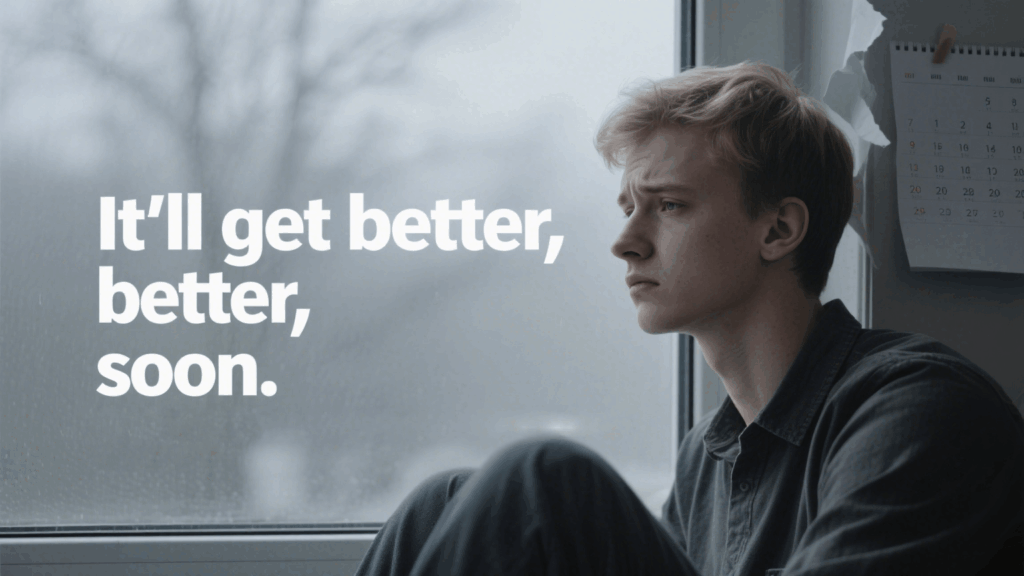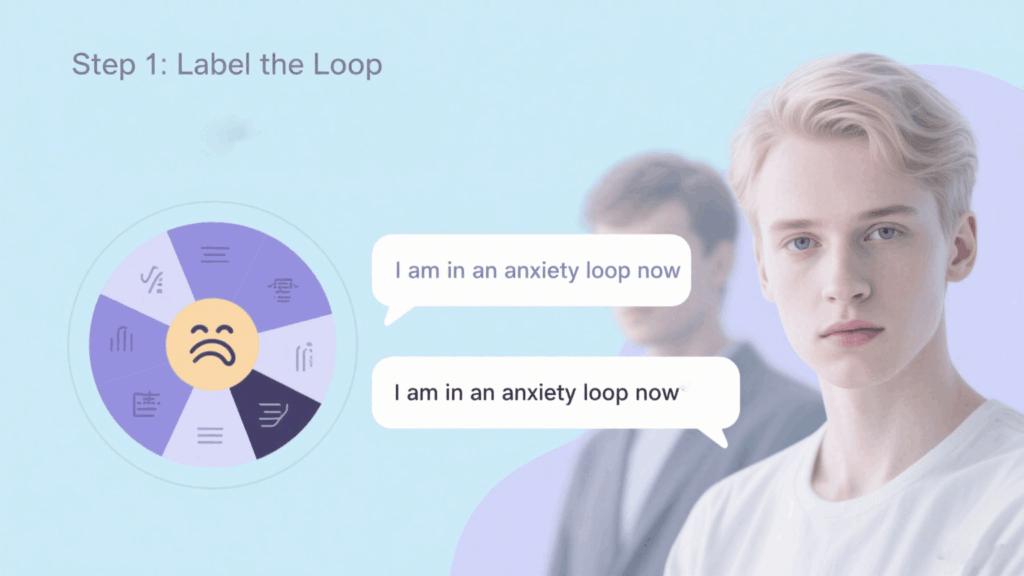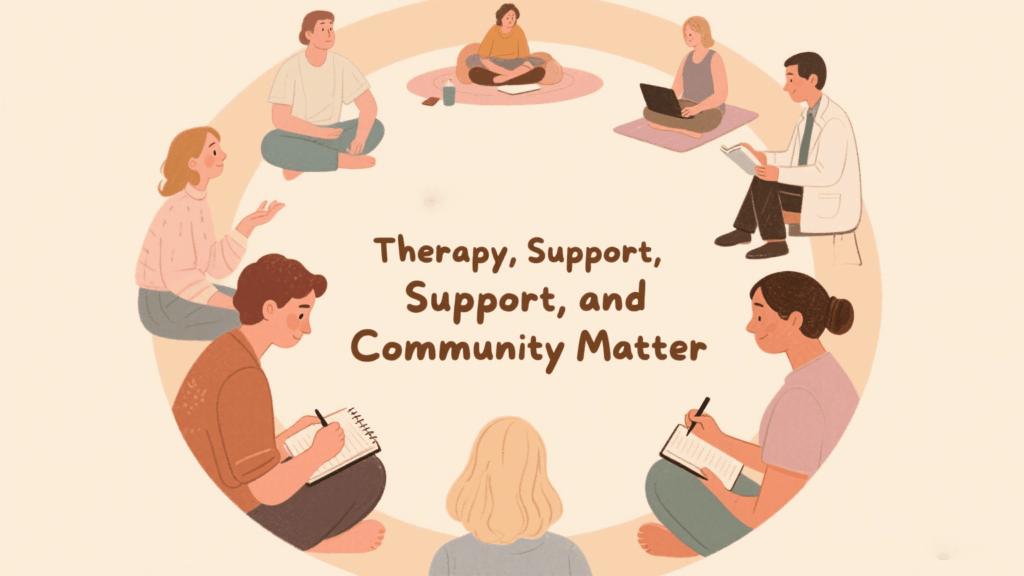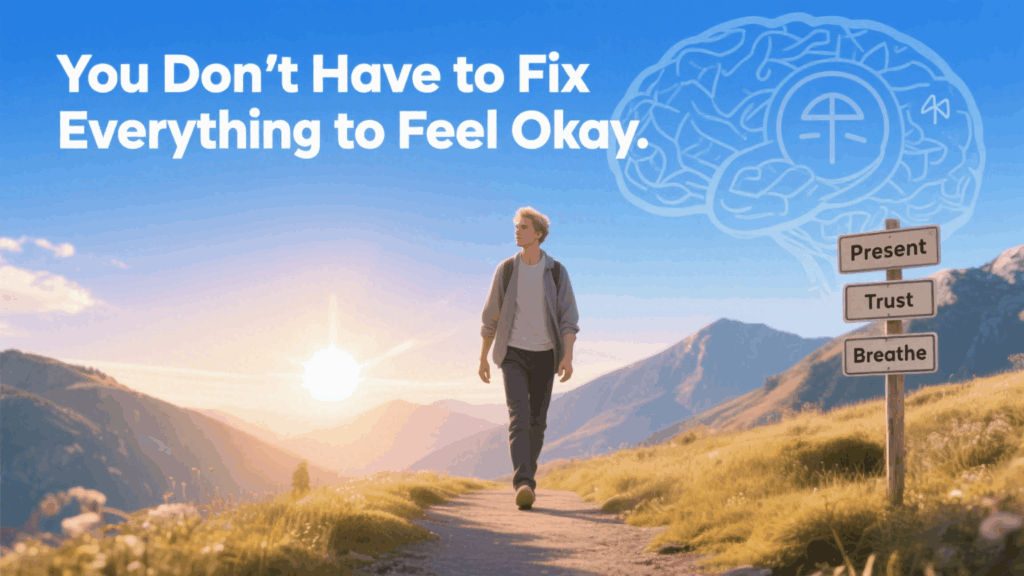Has it ever happened that you have anticipated the moment this period of time will end and the feeling of calm will finally come? However, almost every time something like this happens, that feeling of calm never comes. You finish the work, meet the deadline, or address the problem, but there’s only a temporary relief. Instead, a new fear is the next driving force almost immediately. This permanent circulatory system can make one feel exhausted emotionally and mentally drained.
What causes and maintains this pattern is the concept psychologists refer to as the chronic anxiety loop. It is a mental loop that makes you believe that the balance is only a stone’s throw away while still keeping you nervous 24/7. This article will give you a deeper insight into the reasons for this occurence, how your mind comes into the situation of being caught in this loop and, most importantly, it provides you with a way out.

The Misconception of Upcoming Relief
People often think of a possible solution to a problem as the way to decrease their stress and tension. From a logical point of view, it seems to be as simple as you remove the cause, you remove the result. Unfortunately, for many individuals, this peace of mind is nowhere to be found; it is the brain, still on the lookout for new things that would cause stress.
So, if there is no danger, the brain seeks control and unconsciously predicts maybe some kind of problem. One threat is out of the way, the brain now identifies the next one. This phenomenon is an evolution that has gone wrong in modern society, where the danger is primarily mental or abstract rather than physical.
It is natural to consider that “As soon as I am finished with this task, my life will become quiet again,” or “If my relationship is established and stable, I will not have stress,” but the brain, stuck in a vicious cycle of chronic anxiety, sees the need to stay in this state.
Understanding the Chronic Anxiety Loop
The chronic anxiety loop is a combination of three main parts:
- Overactive worry circuitry: Your brain is very taken with anxious thoughts, turning the situation into a basic one for it.
- Temporary relief: Solving one problem for you results in a short while the relief you got, which fools your mind into thinking that worrying is good.
- Reinforcement through avoidance: You keep away from what causes you discomfort, and that, in turn, reinforces the belief that fear is lethal and should be avoided.
So, the feedback loop itself is like a machine which makes anxiety become a never-ending thing. Not just the external environment becomes better while your nervous system still remains overwrought, but it tends to be always expecting the next problem to arise.

The Role of Modern Culture in Sustaining Anxiety
Along with the individual, today’s culture has a significant role in the endurance of the chronic anxiety loop. The results of constant availability, productivity problems, and social envy bring about an environment in which a person can hardly experience the feelings of “I have done it” and “I am really relaxed”.
- Productivity addiction: The notion that you are only worthy when you are productive stops you from being at ease causing you to be in constant competition with yourself.
- Social media comparisons: The encounters with the selective images of the fellowmen’s happiness or success can cause in you the feelings of your insufficiency and FOMO (fear of missing out) much stronger.
- 24/7 information: The ongoing bombardment of news and notifications keeps the nervous system on alert, and real rest becomes scarce.
These outside factors penetrate the inner loop, piling up more and more confirmations to the belief that you are not safe unless you are in a constant get-things-ready or do-things-better stage.
Breaking the Circle of Chronic Anxiety – 6 Ways
Just a strong ‘I want to’ is too low for a successful outcome. In this connection, a combination of rain, lifestyle, and emotional tools is requested for a change to occur.
1. Recognize the Pattern – Labeling
Step one is knowing when you are stuck in a chronic anxiety loop. The best action is to label the feeling instead of getting further with it. Say the words “I’m in my anxiety loop right now.”
2. Cultivate Awareness
It would be great if you could be more focused on the moment. This comes from mindfulness activities such as:
- Breath concentration
- Self-reflection
- Memory test
3. Work Against Negative Thoughts
Identify your anxious thoughts and write them down as a means to start evaluating their logic. Ask yourself the following questions:
- Is this fear real?
- Did I deal with similar cases in the past?
- If my friend was in this situation, what would I say to him?
4. Get Comfortable with the Uncomfortable
Do not try to avoid the fear but rather face achievable challenges head-on. These can be small discomforts that step by step will raise your tolerance level. In this way, your brain will change its understanding of discomfort and danger.
5. Change Your View of Success and Relaxation
Change the words of these ideas by:
- Your success comes from your balanced state of mind, and you have a life of moral quality // Success is not just getting, but includes living your life through the right morals and the welfare of your mind.
- You can relax and work at the same time. It is not something that follows after work; it is as if it were the secret of your physical and mental endurance.
6. Limit the Impact of Tech and Media
Partly limit your exposure to information you suspect might result in stress in your life. It can be done by doing these things:
- Switch off all electronic gadgets and do something else.
Socializing tech-free hours during the day in your scheduleTherapy and SupportIf you select to go to a professional, it probably will be very helpful. An expert in CBT, ACT, or somatic therapy can be able to assist you to:Recognize underlying thoughts
Question anxious thought traps
Discover emotion-regulation strategies
Support groups, journaling, and community practices like yoga or meditation circles can also provide tools and accountability as you work to break the cycle.Final ThoughtsIf you’re stuck in an anxiety loop, it can be quite tough to stay calm. Although you are likely to feel that it is very difficult to break out of this pattern, it is totally within your possibilities. By consciously looking for the right assistance of lifestyle practices that work for you, it is practically feasible to gain inner peace and maintain the closeness to your experience of being in the here and now.Your understanding of the anxiety mechanisms is the source of your empowerment. Moreover, it is quite often a significant breakthrough to realize that not everything should be fixed in order for you to be fine.
- Recognize underlying thoughts
- Question anxious thought traps
- Discover emotion-regulation strategies

Therapy and Support
Life coaching and psychotherapy are truly powerful methods of healing. A professional, who has been certified through various cognitive-behavioral, acceptance and commitment therapy, or somatic therapy schools, can help you to:
- Understand your deep beliefs
- Confront the patterns that tend to make you anxious
- Acquire the ability to manage your emotions well
Community group therapy, creative writing, community teams like yoga or meditation circles can all be means for recovery from a very deep anxiety cycle.
Final Thoughts
If you are living in a continuous state of experiencing tension and nervousness, it is very likely you might be suffering from chronic anxiety. Although deeply ingrained, this unhealthy loop is certainly alterable. The fact that as long as you know what you require, have the necessary equipment, and being in a societal scenario where you are supported, you can free yourself from this loop and hold on to peace and certainty as well as the moment gets reaffirmed.

Recognizing the drivers of anxiety empowers you. Additionally, the realization of joy often emerges from the acceptance of the fact that a person is not obliged to be responsible for everything is the most significant defeat over anxiety disorder.